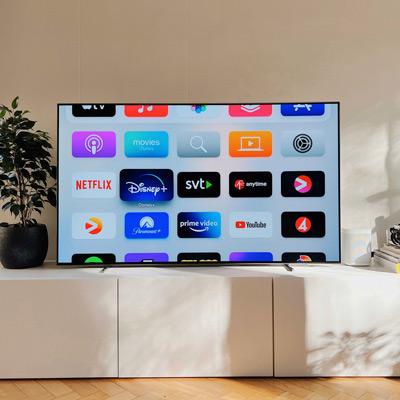
Like many other people around the world, perhaps you're considering upgrading your home TV. In a digital age where practically all the content and entertainment we consume is streamed through a screen, it's natural to seek out technology that offers us the best experience.
These days, we find absolutely stunning options on the market, with image qualities that, a few years ago, we couldn't have even imagined possible. Therefore, in this article, we'll address the differences between QLED and OLED screens, two of the most popular and advanced technologies in the market.
Latest generation of screens
OLED and QLED represent the forefront of screen technology. These panels have rapidly evolved in recent years, offering significantly improved image quality and energy efficiency compared to traditional LED screens. They are the result of years of innovation by leading brands in the industry.
Let's take a look at the main characteristics of each of these technologies and how they compare.
What is an OLED panel?
OLED, which stands for Organic Light-Emitting Diode, is a screen technology known for its self-emissive capabilities. Each pixel in an OLED panel is essentially a tiny LED that can produce light and color independently. This results in several advantages.
Excellent black levels and contrast: OLED's ability to completely switch off pixels allows for achieving absolute black levels, providing unparalleled contrast compared to traditional backlit displays.
Wide viewing angles: Without the need for backlighting, OLED screens maintain color and brightness consistently even at extreme viewing angles.
Slim design: The absence of a bulky backlight unit enables OLED TVs to be incredibly thin and light, offering greater flexibility in design and installation.
Good energy efficiency: By illuminating only the necessary pixels, OLEDs can be more energy-efficient, especially when displaying dark scenes.
Excellent color accuracy: OLED panels are known for their exceptional color accuracy, offering a wide range of realistic colors and shades.
Despite these advantages, OLED technology has some disadvantages. They tend to be more expensive than other types of screens, and in some models (especially older ones), there's a risk of burn-in, where static images can leave a permanent mark on the screen if displayed for extended periods.
LG Display is one of the leading manufacturers of OLED panels in the market, supplying them to various TV and device manufacturers, resulting in a widespread presence not just in OLED TVs but also in OLED smartphones, OLED laptops, OLED smartwatches, and more.

What is a QLED panel?
QLED, which stands for Quantum-dot Light-Emitting Diode, is a type of screen technology that enhances traditional LED (Light-Emitting Diode) TVs with quantum dots. These quantum dots are microscopic molecules that, when hit by light, emit their own differently colored light. The main characteristics of QLED panels include:
Enhanced brightness: QLED TVs' backlighting enables them to achieve higher brightness levels compared to OLED screens.
Vibrant colors: The inclusion of quantum dots allows QLED screens to produce a wider spectrum of colors, resulting in more vivid and saturated colors.
Potentially longer lifespan: QLED screens are less prone to burn-in issues, which could make them more durable over time.
Variability in black levels: While QLEDs have improved black levels, especially with recent advancements like mini-LED technology, they still can't achieve the absolute black levels of OLED due to their reliance on backlighting.
Cost-effectiveness: Overall, QLED screens tend to be more budget-friendly than OLEDs, making them a more affordable option for a larger number of consumers.
However, the use of backlighting can lead to issues like 'light bleed,' where light spills from bright areas into supposedly dark sections of the screen. Despite this, ongoing advancements in QLED technology, such as the introduction of mini-LEDs, are narrowing the gap with OLEDs, particularly in black level performance.
QLED technology is primarily advanced by Samsung, which has led to the rapid growth of QLED Smart TVs.
QLED vs OLED: Main Differences
Now that we've explored some of the main characteristics of each panel, let's determine the winner in different categories.
| Parameter | Winner |
| Image Quality | OLED |
| Black Levels and Contrast | OLED |
| Brightness | QLED |
| Uniformity | OLED |
| Colors | Tie |
| Viewing Angles | OLED |
| Power Consumption | OLED |
| Price | QLED |
How to decide between OLED and QLED in 2024?
In most cases, an OLED screen is likely to be superior to a QLED one. However, the choice will always depend on individual preferences, budget, and viewing conditions.
For most viewing environments, especially those with controlled lighting and a focus on deep blacks and wide viewing angles (such as gaming setups), OLED is the superior choice. On the other hand, in well-lit rooms or for those prioritizing longevity and cost-effectiveness, QLED is a more suitable option.
Finally, we can never rule out further advancements in both technologies in the coming year, which could alter this landscape. But until then, you can explore the range of OLED TVs and QLED TVs in our online store.
A battle of giants
When it comes to innovation in consumer technologies, one thing is certain: major manufacturers will continue tirelessly improving their technology. Therefore, the battle between OLED and QLED technologies is far from over.
Whether you're in search of an excellent-quality OLED TV or a cost-effective QLED TV, there's no shortage of great options at the best prices in our online store.
Lastly, don't forget that you can always seek advice from one of our experts if you visit one of our physical stores in Porto or Braga. Happy shopping!

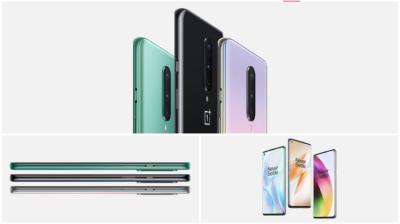



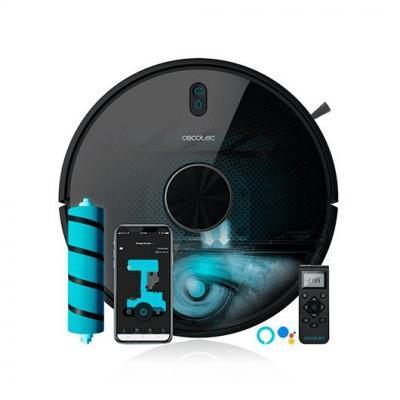
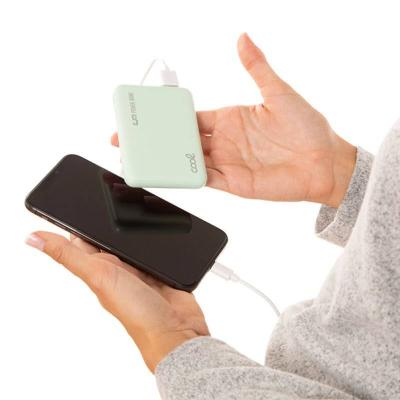
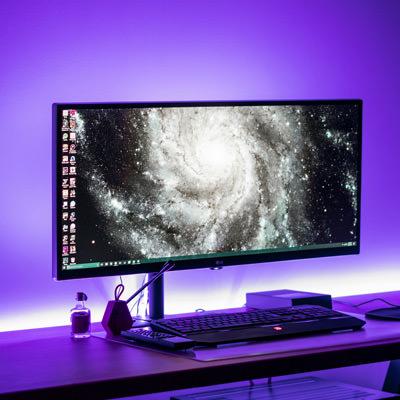
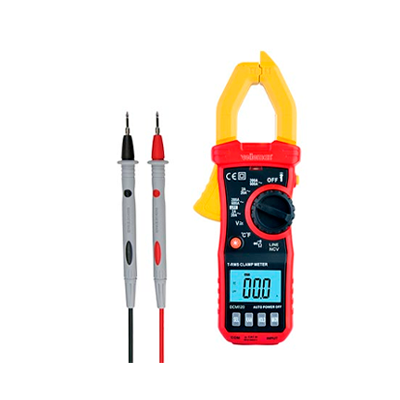
Comments